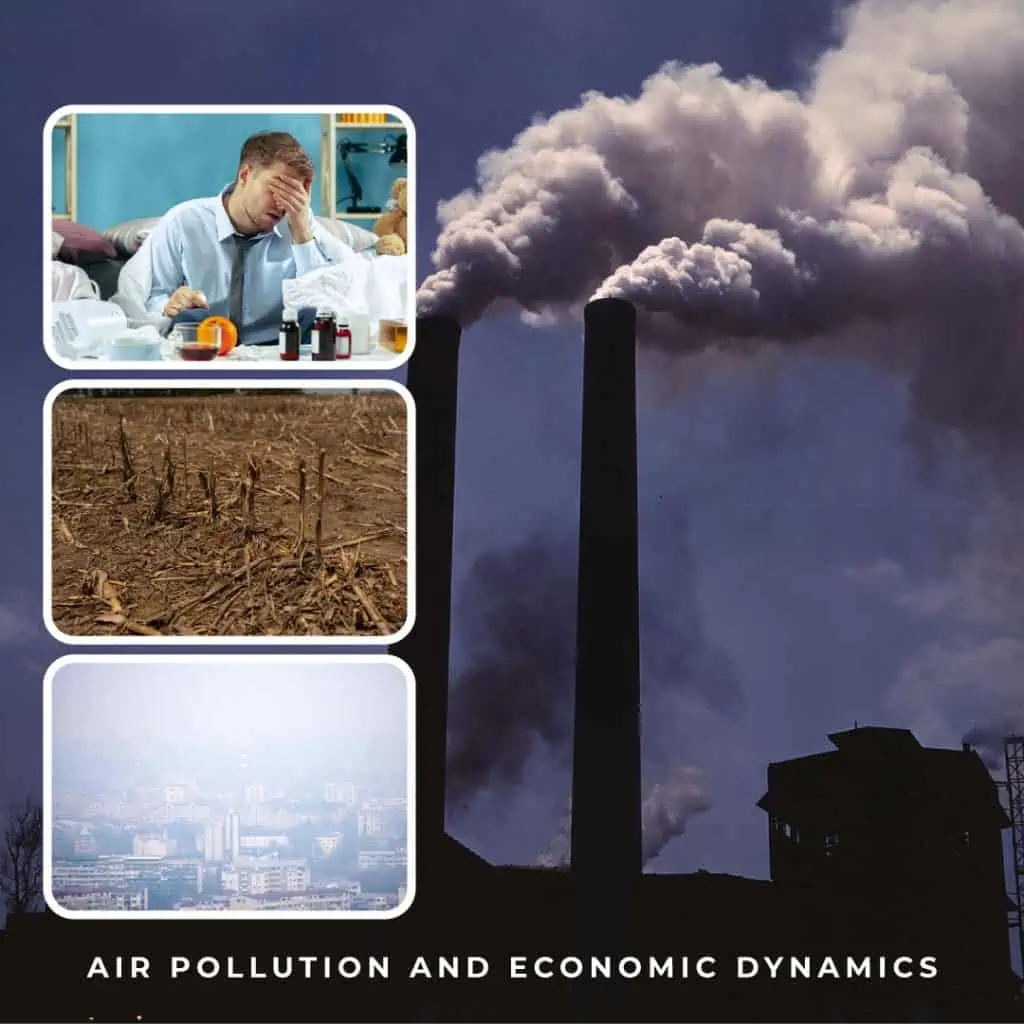Air Pollution and Economic Dynamics: Strategic Response

Air Pollution and Economic Dynamics: Strategic Response
Written By : Aditya Vaghela & Kruti Davda
Published On June, 2023
Air pollution is a major burden, hurting economies in many ways. It increases healthcare costs due to respiratory illnesses, harms agricultural yields, and reduces worker productivity. The economic impact is especially severe in low- and middle-income countries. While air pollution presents significant challenges in economic growth and public health issues, strategic investments in monitoring and mitigation can yield substantial economic and health benefits. By prioritizing air quality improvements and leveraging technology to enhance monitoring capabilities, societies can pave the way for a more sustainable and prosperous future. Within this whitepaper, you will find information on the following:
- The complex relationship between air pollution and economic growth, examining how air pollution negatively impacts human health, productivity, agricultural outputs, environmental quality, and cultural heritage. The detrimental effects are particularly severe in poorer and developing nations, where the economic burden of air pollution impedes societal progress and development. This link between environmental degradation and economic hardship suggests that air pollution could stifle the economic potential of these regions.
- How efforts to mitigate air pollution can lead to economic opportunities. Investing in clean technologies and pollution control measures can spur the creation of new industries and jobs, particularly in green energy and sustainable practices. These investments help reduce the environmental impact of economic activities and foster innovation and job creation in emerging sectors.
- The significance of budget allocations for air quality monitoring programs. While traditional monitoring networks are costly to install and operate, limiting their coverage and effectiveness, the paper argues for these investments’ economic and health benefits. Effective monitoring can guide policy-making and help evaluate the effectiveness of air pollution mitigation strategies, ultimately supporting long-term economic growth and public health improvements.
- The paper reviews various reports and analyses that quantify air pollution’s economic costs and the potential benefits of mitigating it. For instance, studies from the World Bank and other international organizations have put forth staggering figures representing the global economic losses due to air pollution, emphasizing the urgent need for comprehensive environmental policies and actions.
- The role of international and governmental organizations. These entities, such as the WHO, UNEP, OSHA, and national environmental agencies, are pivotal in setting standards, financing research, and propelling initiatives that combat air pollution.
- How summits and conferences like the G20 and COP26 act as arenas for these discussions, shaping global policies that strive to reduce environmental impacts and promote economic stability.





